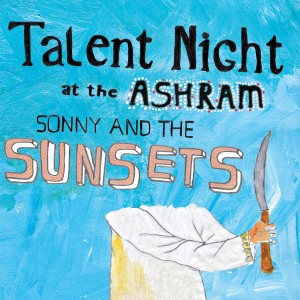Santiparro – True Prayer
Chances are that you haven’t heard of Santiparro, the solo project of Alan Scheurman, and while I never mean to underestimate you dear reader, chances are higher that you don’t know what Santiparro means. So you know, this name means “the lens that sees many things not usually seen,” which was given to Scheurman on a pilgrimage to Wirikuta, the sacred desert where Peyote originates. This should clue you in to the earthy, sacred, and ethereal nature of True Prayer, if the album artwork hadn’t already. Overall, these threads are the center of this album, weaving together along with the twisted psychedelic folk rock to create something the likes of which are hard to come by.
The whole album is very much grounded in nature, which is made obvious through the opening track “Sikuli,” which is merely the sound of birds chirping calmly, as if welcoming the day. In opening this way, Santiparro gets our minds in the right state of mind before he really begins. When he does on “The New Baktun,” you encounter the soft vocals placed gently atop the gently folksy blend of guitar and barely-there percussive elements, such as shakers. This makes for a simple and effortless sound, but one distinguished by the quality of each of the elements. There’s a sleepy, half-trancelike nature to the sound on this song, and this is just Santiparro getting started.
True Prayer, while it maintains this trancelike, ethereal nature through its duration, does pick up a bit. Songs like “Total Freedom,” build on the simple foundation, adding more layers and earthy dimensionality. The guitar sound is twangy, although still subtle and low in the mix; there is a lot going on here, but not overwhelming. “Where We’re From” is one of the most straightforward songs on the album, but it still incorporates the intricacies that you’ve come to enjoy already. There’s a shift to a more rock and roll temperament here, with little squalls of fuzzy electric guitar that scatter off along the edges. The vocals are more forceful, standing out in the mix and changing from whispery to full bodied and deep.
Now, while this album is enjoyable, it’s important to note that if this is your genre of choice, I think that True Prayer could easily move up in your eyes from good to great. For me, there doesn’t seem to be enough variety in song style for to sink my teeth into this album for the long run, but there are a good deal of worthwhile and sonically interesting tracks that makes for a pretty good debut, albeit a little long. I look forward to seeing what the future holds for Santiparro.













